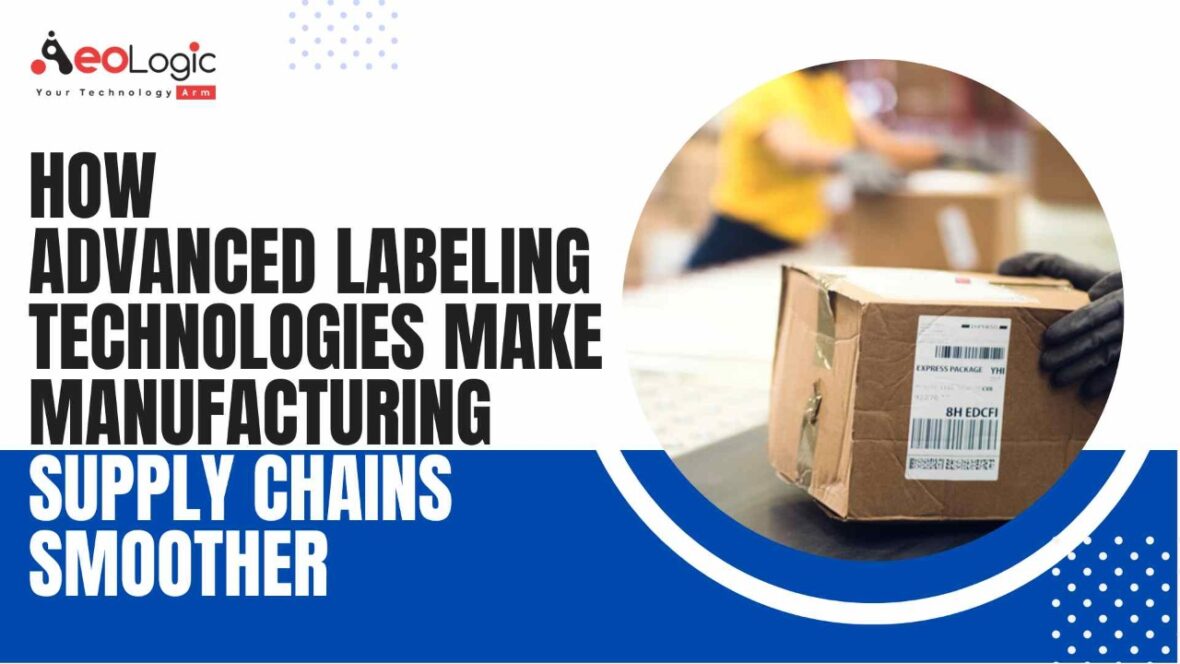No matter which industry you work in, from oil and gas and construction to the automotive industry. Because of such tight regulations, several products are also subject to strict labeling requirements. Many companies are now relying on the newest and most advanced labeling in manufacturing supply chains. Ensure products along the supply chain are effectively labeled.
Such as companies like LabTAG, and Seagull, as well as many high-end thermal printer manufacturers. Any talk of advanced identification technology begins and often ends with radio-frequency identification (RFID). RFID isn’t exactly new. The technology itself has been there since the 70s. However, recently, there are substantial improvements in RFID technology. It is making the process much more cost-efficient.
Also read: RFID Solutions for Inventory Tracking in Your Warehouse
RFID and Supply Chains
These features are offering everything in the supply chain with optimal trackability and traceability. Since all parts made and assembled during production can be encoded with all relevant information. From batch numbers to the time and date it was processed. All appropriate data can be assessed in an instant. That too, without the need of scanning each and every individual code. This can aid in providing solutions to inefficiencies in the supply chain. Especially those that arise from poor inventory management.
So, how does this impact the supply chain? We’ve covered many of the benefits of RFID before:
- Scanning from a distance, without a direct line of sight
- Scanning multiple tags simultaneously
- High storage capacity
- Increased standard of security
With advanced labeling in manufacturing supply chains, companies are better managing expiry dates, recalls, and stock inflow and outflow. In the food industry, RFID is also making it possible in quickly tracing contaminated batches. Hence reducing the likelihood of harm caused by a defective product.
RFID likely isn’t used as often as it ought to be in the supply chain. Mainly because it’s only recently that RFID technology was the potential of being adapted to varying environmental conditions. (Zolpidem) Production lines are often relying on high-heat conditions and chemical exposure. Where they were not using RFID-based solutions. Now RFID inlays can be produced on any type of label.
Using the right software is essential
Advanced labeling in manufacturing supply chains makes it run smoothly. Where the software is an essential component of supply chains. For example, from inventory to incidents, to maintaining compliance and meeting all industry regulations.
One thing to look for when selecting software, whether it’s for supply chain management, label printing, or inventory management, is its adaptability. All software must be capable of integration. Therefore, the databases containing identifiers can be instantly connected between the two systems. This makes printing labels much quicker and reduces errors caused by manual data input.
Another thing to consider is the ability of your software to produce both barcodes and RFID. For labels with RFID inlays, it is also possible to print barcodes (preferably with a thermal-transfer printer to offer maximum protection against abrasion, chemicals, and extreme temperatures) on the facestock as a secondary tracking method. This signifies that not only having a printer with these capabilities but software as well.
Label customization for adaptable supply chains
As mentioned before, RFID is a much more attractive identification technology in advanced labeling in manufacturing supply chains nowadays. Due to its capability to come with any label. Where even a single accident can stop the chain in its tracks. This implies that just one label that fails can cause considerable losses and potential harm to patients.
Working with a manufacturer that can customize labels, not just orders, is beneficial for several reasons. In this case, it is helping in having the right personnel with the expertise. In order to understand these specific identification requirements. Hence this facilitates allowing for a period of optimization to ensure the solution works as intended.
Also read: Top Reasons to Use RFID in Manufacturing Industry
Conclusion
There are several ways to improve productivity. As well as reduce errors along the supply chain. Several companies are developing new technology. Ultimately, working to improve identification will increase productivity, save money, and lead to a better overall product.
If you are interested to elevate your manufacturing business with RFID and looking for industry experts, then kindly contact us at support@aeologic.com
FAQs
Are RFID tags waterproof?
The RFID tags are waterproof and the organization offers high resistance to aggressive liquids, offering reliable performance and reading stability across fluctuating temperatures.
What are the challenges in the RFID system?
The trouble with metals and liquids: RFID has had a difficult relationship working among liquids and metals. Since both make it difficult to get proper reads on assets. With metal, the problem arises from the radio waves bouncing all over the place. Liquids act havoc with RFID since they can absorb signals sent from a tag.






